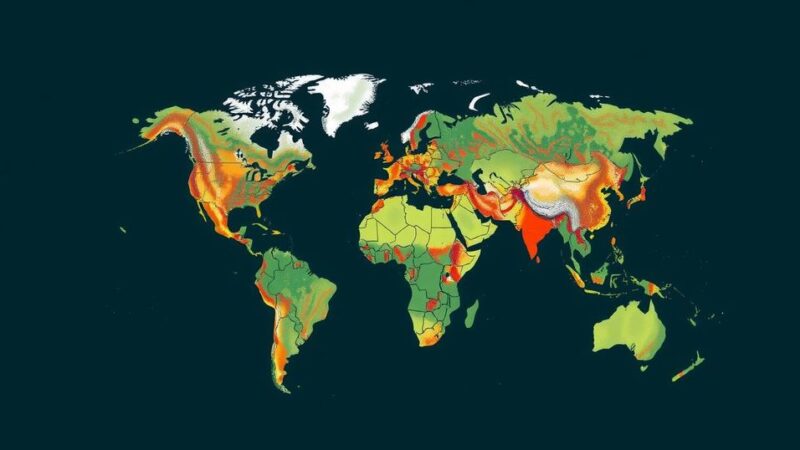The mountain collapse in the Democratic Republic of Congo exposed vast copper reserves, sparking viral reactions emphasizing the need for local ownership and protection against foreign exploitation. This incident occurred in the mineral-rich Katanga region, known for its significant copper deposits, which are crucial for global supply chains, particularly in renewable energy and electric vehicles.
A recent mountain collapse in the Democratic Republic of Congo has unveiled substantial copper reserves, prompting widespread discussions about colonialism and exploitation of natural resources. As footage of this event became viral, viewers expressed concerns over foreign exploitation of the newly revealed minerals. The incident occurred in the Katanga region, an area renowned for its mineral wealth, where onlookers were seen fleeing as rocks cascaded down the mountainside. The Democratic Republic of Congo is endowed with one of the world’s richest copper deposits located primarily in the Katanga region. Known for its high-grade copper, this area boasts some of the lowest production costs globally, making it a significant player in international markets. The copper found in this region is not only vital for traditional industries but has gained importance amid the global shift towards renewable energy solutions and electric vehicles. The online reaction to the mountain collapse has varied, with many expressing the need for local ownership and autonomy regarding the country’s resources. Prominent comments included sentiments that urged for protection against foreign entities seeking to exploit the copper reserves effectively highlighted the divide between colonial history and the present-day realities in Congo. Many users suggested banning entry to individuals from Britain and other Western nations, reflecting concerns over continued exploitation. Moreover, some comments implied that the mountain’s collapse may not have occurred naturally but was a result of prolonged mining activities in the region, suggesting a deeper issue of environmental and regulatory oversight.
The Democratic Republic of Congo possesses immense natural resources, including some of the largest copper reserves in the world, located in the rich copperbelt region of Katanga. The country often faces challenges regarding the management and ownership of its mineral wealth due to historical colonial exploitation and modern foreign interests. The copper industry not only supports local economies but is increasingly significant in the global market driven by the demand for renewable energy and technological applications. This context is vital for understanding the public’s reaction to recent geological events that threaten these valuable resources.
The recent mountain collapse in the Democratic Republic of Congo has brought to light the country’s considerable copper reserves, stirring pressing conversations surrounding colonial legacies and resource management. The public outcry emphasizes a desire for Congolese control over its national treasures amidst fears of foreign exploitation. As the demand for copper continues to rise in tandem with technological advancements, these discussions remain crucial for the future of the nation’s natural wealth.
Original Source: www.hindustantimes.com

